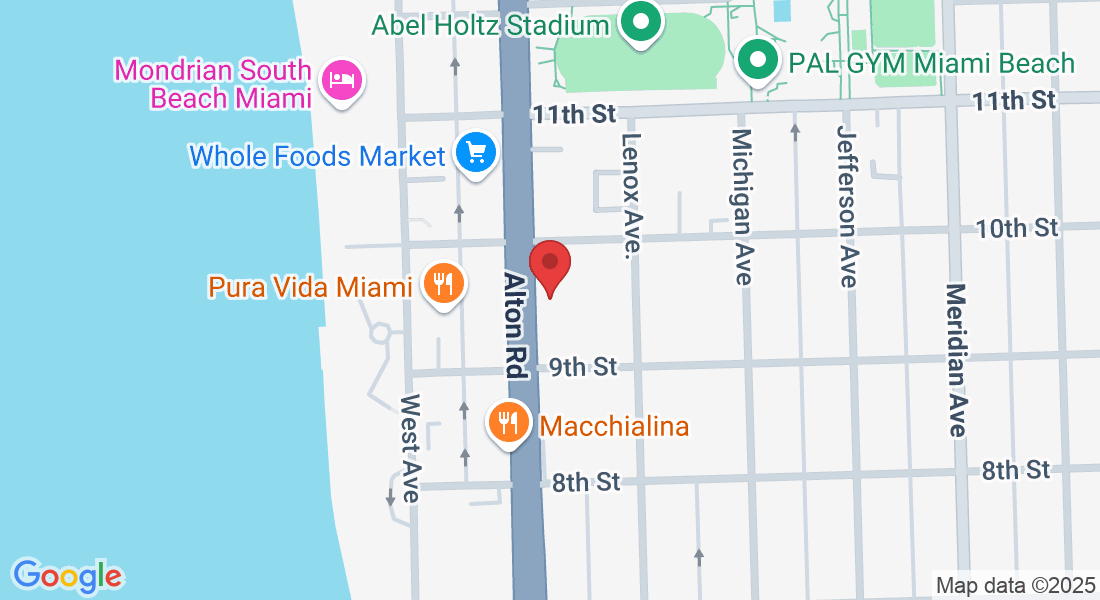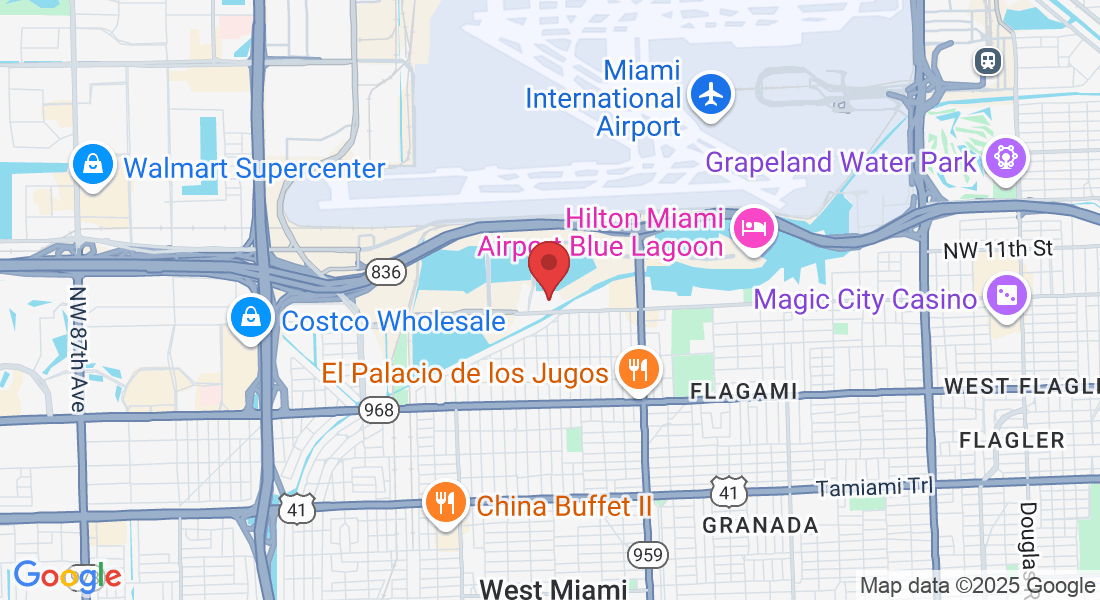📞Call Now: (305) 987-3053
THE ULTIMATE GUIDE FOR MIAMI WAREHOUSE OWNERS
How to Sell for Top Dollar-Fast!
The 7 Mistakes that Kill Value
Part of selling for top dollar fast is avoiding the usual landmines that many sellers step on along the way. Specifically, we're talking about the seven mistakes that sellers make that kill value. I can't tell you how many times I've seen the same mistakes made over and over again. So, I'd like to help you put top dollar in your pocket by avoiding these common pitfalls.
So, let's talk about Underpricing vs Overpricing. Now, a lot has changed over the years. In the last 25 years, we've seen more technological changes than we've seen in the last probably thousand years. The way we do business is very different than it was years ago. So, there's an old way of thinking where sellers just put the property up for a super high price and think the people will come in with a lower offer and we'll meet somewhere in the middle, right? And it makes sense logically and that worked more or less in the “pre-technology age”. Before, you just slapped a sign outside, maybe put the property in the newspaper, and then invited offers.
However, the way people shop for buildings, shop for real estate has changed. Here's what I mean. Let's say you go on to the world's most popular commercial real estate site, LoopNet.com. Say you go there looking for a property. The very first thing they ask you to do is put in a price range. Now, let's say for argument's sake, you have a building that you want to sell and you want to put $7.2 million in your pocket. A lot of people would say, "Well, let's just put it on the market for $8.2 million and maybe we'll get offers somewhere between $7.2 and $8 million, and we'll go from there."
It's a common misconception, but the problem is if you really think about it, if there's a buyer out there and they can afford $7.2 million, maybe they'll only put their search from $6.5 to $7.5 million. The point is, if you have it above $8 million, and they're searching between $7million and $8 million, it won’t even show up. It's like a tree that falls in the woods and no one hears it—did it even fall?
So, a common misconception in today's day and age is that you just put it up at a high price. But when searching digitally, it will not be seen by a lot of buyers.
I’ve seen this over and over again. If we adjust the pricing on a property, drop it down just a little bit, next thing you know, the market comes alive. Why? Because it now gets within the range of where people are actually looking.
Now, let’s talk about “underpricing”. Let me first say that I don’t believe there is such a thing…A lot of people are afraid of underpricing. I know I would be—no one wants to leave money on the table. But at the end of the day, it is absolutely impossible to underprice a property on the open market. You can underprice a property by selling it off-market to your neighbor. You know why? Because unless the market has gotten a chance to compete for your property, you don't know what the real value is.
If you just call your neighbor Bob and say, "Hey Bob, I’ll sell you this building for $3 million." "Okay, fine." End of story, right? There’s a very good chance you could underprice it. It's only when we take a property and we put it on the open market and expose it to the largest audience possible that we’re able to maximize the value to the seller.
I have a rule of thumb I use for gauging pricing…Think about it this way: anything over 10% above the strike price (the price the market will buy at), you're not going to see many offers. You get it within 5–10% above strike price, you start getting an offer here, an offer there.
If you price it within 0–5% above strike, that’s where you get multiple offers.
And I’ll tell you why.
We mentioned LoopNet. Imagine you go onto LoopNet—I’m sure you’ve seen a lot of overpriced, garbage properties (based on their asking price). But when you see one that's actually priced well, you jump right on it. Just as you would react that way, so do other buyers. That’s how we get what I call a “buying frenzy”. If you’ve ever used eBay or been involved in any competitive bidding process, you’ve probably overpaid for something because of FOMO—fear of missing out. We all have…
That’s how you get the highest dollar for your property: by creating a competitive bidding environment and getting people into that auction-type mentality.
If it's on the open market and it's visible to absolutely everybody, there's no way that you're going to underprice your property—it’ll always get bid up.
In a market like Miami, there are thousands of buyers out there, all willing to buy it if the price is right.
Let's talk about other things that kill value.
Deferred Maintenance
The warehouse sales process is very simple: you'll usually do one, two, sometimes three inspections—physical, environmental, and sometimes an appraisal. The person doing the physical inspection is going to walk the building and see every little issue: leaking gutters, roof bubbles, cracks in the pavement, settling in the concrete block, overloaded electrical panels.
A lot of building owners ignore problems with the buildings because the rent comes in on the 1st and no tenants are complaining. As a warehouse owner myself, I get it. But deferred maintenance shows up during inspections, and buyers will always overestimate the cost of repairs.
So, if you know there are things to fix, start fixing them now—even if you’re not planning to sell for 6 months, a year, or even a couple of years. Your future self will thank you.
Unpermitted Structures
Especially here in Miami post-Surfside tragedy, cities have become stricter on structural and unpermitted mezzanines and structures. I just went through a 40-year inspection, and they were very thorough. Things like unpermitted mezzanines used to be overlooked—now they are flagged.
I’ve seen deals fall apart over unpermitted structures as recently as last month. If there’s anything unpermitted, either get it permitted or address it in a way that won’t scare off buyers.
Bad Lease Structures or Short Remaining Term
I'm a fan of short remaining terms—unless the tenant is a credit tenant like Amazon or FedEx. For smaller tenants, short terms allow a new owner to raise rents to market quickly after purchase.
Also, many owners still have gross leases or industrial gross leases. I recommend converting to triple-net (NNN) leases when possible. Investors look at the current property taxes and create future projections. If there’s a huge jump post-sale, it kills the deal. A triple-net structure shifts that burden to the tenant. Which keeps it from affecting your NOI. You can even implement it gradually if needed. (Property tax shifted to tenants this renewal period, and CAM and insurance next renewal period) It can be done- I’ve done it.
Incomplete or Sloppy Records
This is a big one. Owners who have managed properties since before the digital age often have disorganized records. If your records are incomplete or sloppy, it opens the door to doubt—and doubt costs you money with a potential buyer.
Every $1 of additional NOI is worth $12.50 in value at an 8% cap (100/8= 12.50- more on this layer). So if the buyer doubts your numbers, they’ll overestimate expenses and lower their offer. Even a simple spreadsheet is better than a drawer full of receipts. Make your numbers believable and transparent.
Poor Marketing Exposure
Another major mistake is not getting your property in front of the right people, or enough people. It's not just about being on LoopNet. Your marketing must be strategic. A great listing should include strong visuals, financials, and a compelling description. When buyers doubt or are confused, they offer less.
Zoning or Legal Issues
This is similar to deferred maintenance. If you know there's a problem—like a zoning issue, an open permit, a mechanics lien—take care of it before going under contract. Title companies will find it. And if the buyer thinks closing will be delayed, they may cancel during due diligence.
Choosing the Wrong Broker
You only get one chance to make a first impression. Choose a broker who knows how to position your property properly, say the right things, and expose it to the right buyers. Going solo may seem like a way to save a commission, but
A skilled broker can easily earn you far more than they cost.
If you’re looking to get an opinion of value on your property, visitwww.darkhorse-commercial.com. Right on the home page, you’ll see a button that says “Request a Valuation.” Fill in your name and number—it’s no pressure, completely free, and gives you a solid idea of what your building is worth in today’s market. Talk soon!
Assistance Hours
Mon – Fri 9:00am – 5:00pm
Phone Number:
(305) 987-3053
CONTACT US
Assistance Hours
Mon – Fri 9:00am – 4:00pm
Phone Number:
(305) 987-3053


